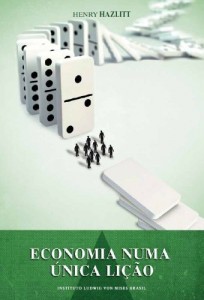Henry Hazlitt (1894–1993) was a well-known journalist who wrote on economic affairs for the New York Times, the Wall Street Journal, and Newsweek, among many. He is perhaps best known as the author of the classic Economics in One Lesson (1946). But Hazlitt was well equipped to be a fiction writer. He was literary editor of The Nation for three years and H.L. Mencken's successor at the American Mercury.
Time Will Run Back is an excellent introduction to the problems of economic systems, and can be a great benefit to young people who are curious about the meaning of economic analysis. It is, in fact, suitable for all ages. The Mises Institute is very pleased to sponsor this Kindle edition.
The plot line of this splendid novel, first published in 1951 and revised in 1966, explores the economic theories of capitalism and socialism.
It begins in a fully socialist society in which the new leader, who finds himself in that position only by accident, begins to rethink the economic basis of the system. He first begins to wonder whether the economy is doing well at all, and how one might know. This sets him on a path to thinking about prices and calculation, and about the very meaning of productivity.
Commerce is introduced when the leader decides to allow the trading of rationing tickets; shortly, markets appear — and everyone seems to be better off as a result.
And on it continues. Slowly, piece by piece, he dismantles central planning and replaces it with a market system. All the while, the characters are engaged in a Socratic-style discussion about the implications of money, exchange, ownership, markets, entrepreneurship, and more.
Time Will Run Back is an excellent introduction to the problems of economic systems, and can be a great benefit to young people who are curious about the meaning of economic analysis. It is, in fact, suitable for all ages. The Mises Institute is very pleased to sponsor this Kindle edition.
The plot line of this splendid novel, first published in 1951 and revised in 1966, explores the economic theories of capitalism and socialism.
It begins in a fully socialist society in which the new leader, who finds himself in that position only by accident, begins to rethink the economic basis of the system. He first begins to wonder whether the economy is doing well at all, and how one might know. This sets him on a path to thinking about prices and calculation, and about the very meaning of productivity.
Commerce is introduced when the leader decides to allow the trading of rationing tickets; shortly, markets appear — and everyone seems to be better off as a result.
And on it continues. Slowly, piece by piece, he dismantles central planning and replaces it with a market system. All the while, the characters are engaged in a Socratic-style discussion about the implications of money, exchange, ownership, markets, entrepreneurship, and more.












